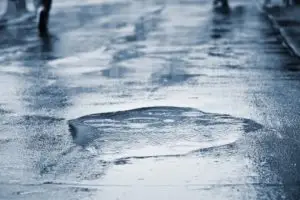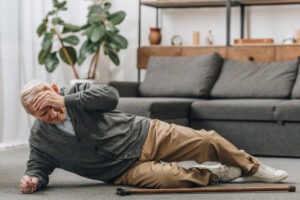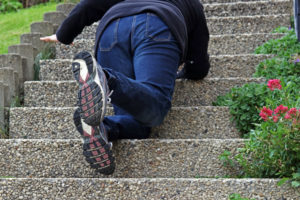
Weather is a Factor in Your Premises Liability Claim
There are a number of potential issues involved in premises liability cases, including the presence of bad weather and how this may play a role in slip and falls. It’s important to know if this impacts a case and how it may deviate from potential legal options. Understanding weather conditions and the way a premises liability case can be negatively impacted isn’t just for anyone to manage alone. Having a lawyer can help you understand what this means and ways to move forward effectively.


Expect More, Receive More: Legal Support That Feels Like Family
When It Can Hurt a Case
Weather may impact a case in a negative way when the owner of a property could do nothing to prevent it from causing a danger. For instance, if the slip and fall occurs because of a slippery floor caused by rain in an outdoor setting, there may not be much action the landowner can take to remove the danger. In some cases, it may be argued that the landowner was unaware of a danger made by the weather. If this is the case, it may not be possible for the individual injured to pursue legal action against the negligent party.
When is Weather a Factor in a Premises Liability Claim?
In order for the weather at the time of the accident to play a role in your premises liability claim, it must be determined that the owner of the property you were hurt on had prior knowledge of how the weather could influence conditions in a way that could be injurious to those they invited onto their property. The weather alone cannot be blamed because it is simply beyond a landowner’s control but in cases where it has repeatedly influenced certain factors to their knowledge, a landowner may possibly be held responsible.
For example, if a retail store of some kind has a leak in its ceiling when it rains and there is a puddle that forms as a result then the owner of the property could be held liable for an injury it causes. The owner of the store had prior knowledge that there was a leak and a puddle that formed. It stands to reason that this puddle could present a danger of causing slip and falls so it falls upon the owner of the property to take measures to remove this threat. This means placing some sort of caution sign and fixing the leak. Should they fail to do this then they are failing to do everything within reason to keep their customers safe and therefore can be found liable.
On the other hand, if the leak occurs in an area where customers are not supposed to be or if the leak suddenly occurs and a person is harmed by it before the property owner has a reasonable time to take preventative measures then it is very likely that they will not be considered liable for the injuries these weather conditions cause.
When Weather Doesn’t Play a Role
Imagine it’s raining pretty hard outside. Water all across the ground, being trekked into different stores or buildings. Unfortunately, the more water that builds up on the floors in these buildings, the more potential there is for someone to slip and fall. If the owner is aware of this danger, but they fail to either keep the floors dry or warn guests about the dangers, they put others at serious risk of injury.
Viles and Beckman Slip and Fall Claim Attorneys
Proving that negligence was involved despite the weather is difficult to do on your own, especially without the necessary resources to pursue a lawsuit. Having a Florida premises liability attorney can prove to be the difference in pursuing compensation and holding the negligent party accountable.
Call Viles & Beckman today at (239) 334-3933 for the legal representation you need. We’re here to help you.
About the Author of this Page: The above information was written or reviewed by one of the attorneys at Viles & Beckman LLC who have a combined experience of nearly 60 years: Marcus Viles, Michael Beckman. The information provided in this article comes from years of experience trying legal cases outside and inside courtrooms throughout Florida along with extensive research.






